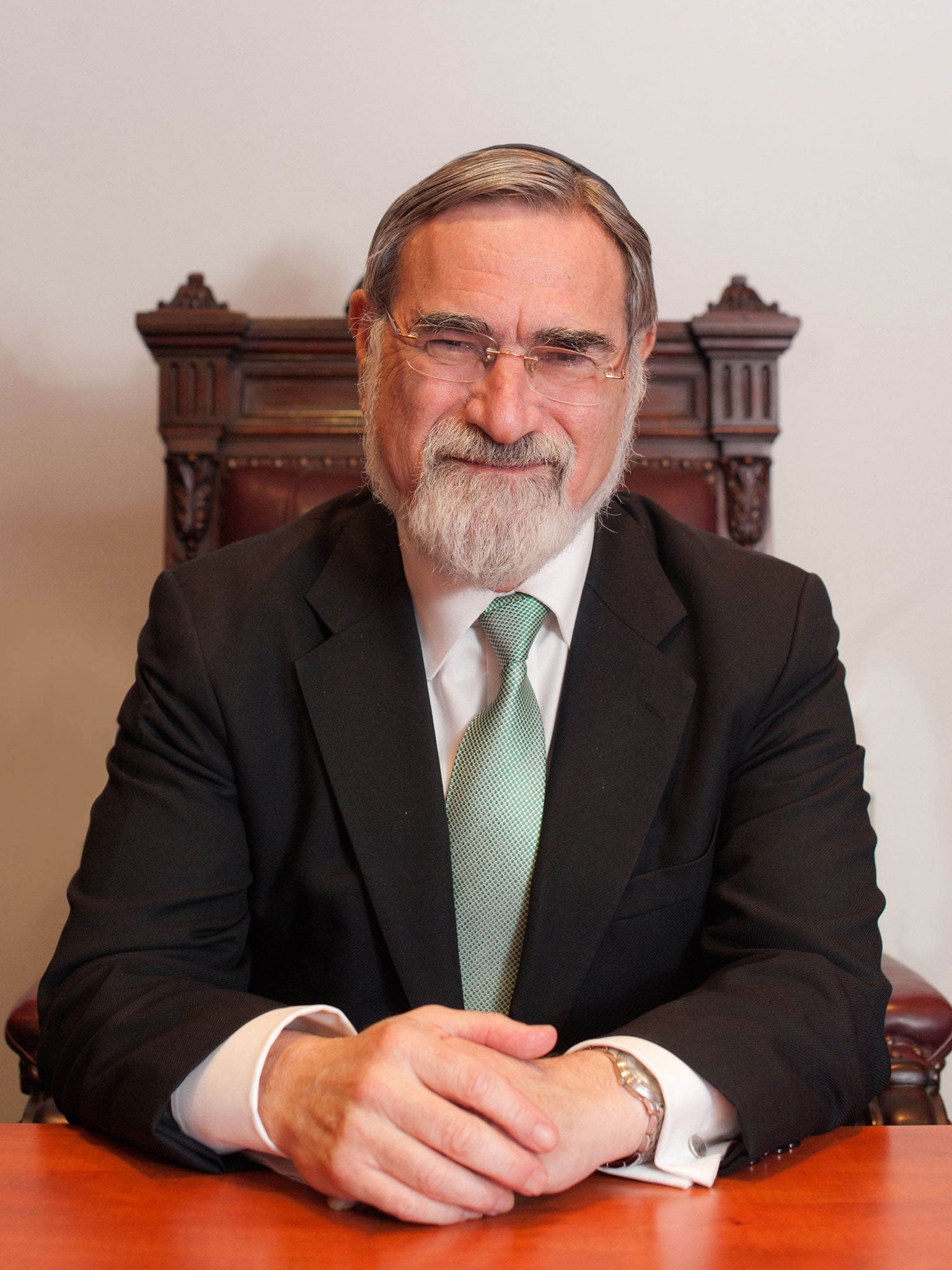Chief Rabbi Lord Sacks: Lack of faith means Britain is ‘losing the plot’
Jewish religious leader blames increasing secularisation for breakdown of institutions

Britain is “losing the plot” because its increasingly secular society has led to a breakdown of trust affecting marriage, child poverty and the economy, the outgoing Chief Rabbi, Lord Sacks, said on Sunday.
Lord Sacks, who became one of the country’s highest profile religious commentators in 22 years as Chief Rabbi, said in an interview that “individualism is no way to build a society” and that religious faith helped bolster trust in society as a whole.
However, the National Secular Society dismissed the suggestion, saying secularism had led to a fairer, more tolerant society in which people thought for themselves and were “less obedient” to religions.
Lord Sacks, speaking to BBC Radio 4’s Sunday programme, said that the idea of the “big society” was strongest in the UK’s different religions “because that’s what we do, we care for one another”.
But, asked whether Britain was more or less fractured than it had been, he said: “I think we’re losing the plot actually. I think we haven’t really noticed what’s happening in Britain.”
Lord Sacks pointed to the 2008 banking crisis as one example of the problems caused by a lack of religion. “When you begin to lose faith and society becomes very, very secularised, you first see a breakdown of institutions, whether they are financial, economic or… marriage is an institution,” he said.
“And then you ask why they have broken down and you arrive at one word: trust. Trust means having faith in somebody else to keep their faith with you, so there’s something about religious faith that undergirds trust as a whole in society and when trust breaks down you see institutions break down.
“Individualism is no way to build a society... if people work for the maximum possible benefit to themselves, then we will not have trust in industry, economics and financial institutions, we will not see marriages last.”
He said some non-religious parents wanted their children to attend faith schools because they recognised this and wanted their offspring “to grow up with a strong moral sense”.
Lord Sacks said politicians were “part of the breakdown of marriage in the West” over the past 50 years, but he did not blame them or governments for the general lack of trust. “It’s the fault of what we call culture, which is society talking to itself,” he said.
“The truth is that the breakdown of marriage has meant the creation of an entirely new phenomenon of child poverty affecting three million children in Britain today that we thought had been eliminated. So children get to be the victims.”
The Bishop of Bradford, the Rt Rev Nick Baines, agreed with Lord Sacks. “Having moved from a generation that put the common good first, we have now created a culture which puts ‘I’, ‘me’ and ‘my’ first,” he said. “This inevitably has consequences for society and Lord Sacks is right to reiterate what Christian leaders have been saying for years.”
Keith Porteous Wood, executive director of the National Secular Society, said Lord Sacks’ idea that secularisation had led to a decline in trust was “not surprising” but “unfortunate”.
“I think a secular society is a fairer society, where everybody is treated equally, regardless of their beliefs or non-belief,” he said. “I don’t think that the move away from religion is anything to do with trust in society at all. Society, as it has become more educated, has become less blindly obedient, particularly to religion.”
Subscribe to Independent Premium to bookmark this article
Want to bookmark your favourite articles and stories to read or reference later? Start your Independent Premium subscription today.

Join our commenting forum
Join thought-provoking conversations, follow other Independent readers and see their replies